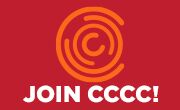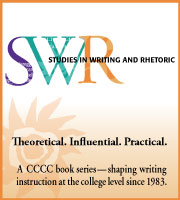Michael J. Klein, Ph.D.
School of Writing, Rhetoric and Technical Communication
James Madison University
The Intellectual Property Caucus meets annually at the CCCC convention for a Wednesday workshop that features a series of roundtables intended to provide educators with a forum in which to discuss intellectual property issues as they affect both instructors and students. Last April, the caucus included one such roundtable on the relationship between students’ rights to their own writing and to the writing of others. Discussion amongst the participants focused on two separate yet related issues.
First, roundtable participants discussed the number of new technologies available to faculty that help them discover whether students have turned in work that has material from sources that are not cited in the work. As materials found on the Internet, and especially the World Wide Web, have become increasingly pervasive as source material for students, some publishers have responded by implementing more and more robust (and complex) technologies to identify work coming from such sources. These so-called plagiarism detection services (PDSs) check uploaded student submissions against existing texts within a database. In order for the instructors to make use of these services, students and faculty must allow the newly submitted documents to become part of this ever-growing database of materials. The rationale behind this requirement is that as faculty check more papers, the database they are checked against will continue to grow, which will make it easier to detect future misuse of sources.
The CCCC-IP caucus has already formulated a position statement on the use of these PDSs (this is not an official CCCC position statement). Given that their use complicates the relationship between instructor and student, this position statement addresses issues that educators need to consider before their institutions adopt such services. This brings us to the second, but no less important, matter discussed by the roundtable participants. In creating a potentially adversarial relationship between students who submit work and the instructors who require the work to be checked, the language describing the necessity of such checks perpetuates the notion that students are “guilty” until they prove themselves “innocent.” Students cheat, hoping not to get “caught”; faculty must then “police” the students, seeking to “detect” when students have “committed” plagiarism. Other examples of such adversarial language are easily evident upon continued inspection of descriptions of such services.
As language instructors, we know the way language shapes perceptions, and in some cases, reality. In using terms like “cheat,” “caught,” “get away with,” etc., we have created circumstances in which students are only likely to reduce cheating due to fear of being caught, not through an understanding of why plagiarism is wrong. The effects of this Panopticon-like fishbowl that PDSs providers (and in some cases faculty) have created exacerbate the problem. Thus, the “war” (irony noted) on plagiarism is futile; we may have less plagiarism, but the students still lack an understanding of why plagiarism is wrong. Punishing those who plagiarize might stop some, but it might also encourage others to try harder to avoid detection.
The roundtable participants realized the irony that, as new technologies simplify the process of taking text or images from one medium or genre and relocating them in another, this ease of research also makes it harder for students to discern between valid and invalid utilization of sources—between what is fair use and what belongs to others. People assume that if they can access something, then they can use it freely, which may date back to the precept that possession is nine-tenths of the law. But this assumption is hardly true in the digital age when copies as good as the originals can be produced with minimal effort.
The participants of the roundtable came away with two action items for future roundtables. First, we need to discuss how to respond when the use of content management software or plagiarism detection software is compulsory. Faculty can use PDSs in a positive way by having the students check their own work and then discuss the results in a non–threatening environment, one in which grades and finger-pointing are absent. In this way, faculty and students work collaboratively to discuss the ways plagiarism may occur as well as opening up the discussion to include the reason why plagiarism is not accepted in academic (nor many other) environments.
As for the second action item, the participants decided to develop a student-oriented plagiarism policy that is responsive to new media technology. This process will include roundtable discussions on this topic at future CCCC meetings. Such a policy will be challenging to craft: “what would it look like” and “who would buy into it” are two questions we will need to grapple with. But the participants recognized that a student-centered plagiarism statement must begin with a level playing field, one in which faculty members do not police their students and students do not attempt to get away with cheating. Such a policy would go a long way toward making teaching more about engagement with materials and less about “gotcha” moments.
This column is sponsored by the Intellectual Property Committee of the CCCC and the CCCC-Intellectual Property Caucus. The IP Caucus maintains a mailing list. If you would like to receive notices of programs sponsored by the Caucus or of opportunities to submit articles to either this column or to an annual report on intellectual property issues, please contact kgainer@radford.edu.












